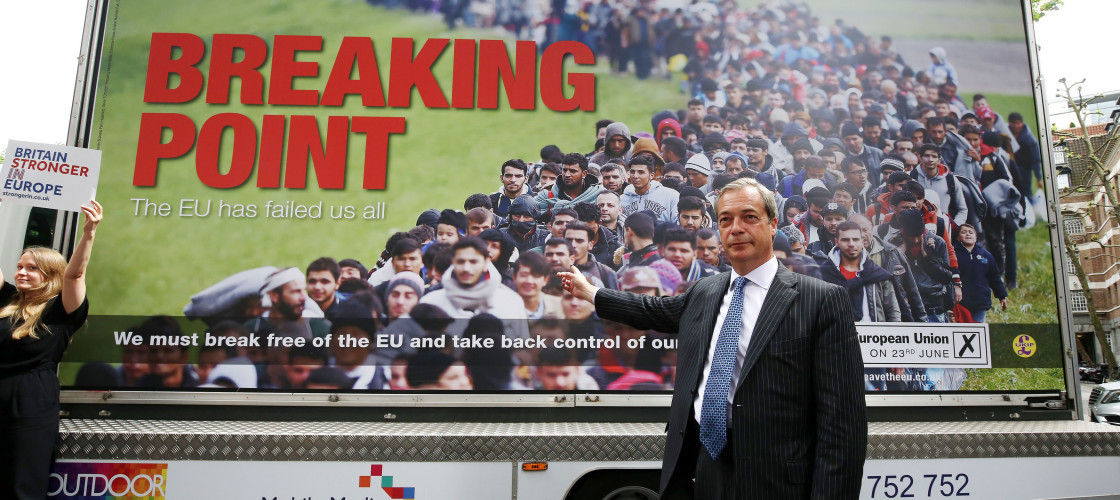The Myth of Brexit
Back in June the UK voted to leave the EU by a narrow margin. Since that time, it's been interesting to watch what's happened not in terms of the negotiations or the UK's official voyage in leaving the EU but in the sense of the way that the vote has been perceived. In particular, it has become interesting to watch how the vote to Leave has metamorphosed from a slight majority to an all-encompassing desire to leave on behalf of the nation (just look at the Prime Minister's speech at the Tory Party Conference this year for more of that), and the way that it's become largely about immigration - consider the many 'throw it at the wall and see if we can get away with it' plans the Home Secretary Amber Rudd is trotting out. The way they speak it is as if the vast majority of the country was opposed to EU membership, rather than it being a 4% difference between Remain and Leave. That overlooks that Nigel Farage, formerly of UKIP, has admitted that if the situation had been reversed he would have continued campaigning. That is his right, of course, but the same courtesy is not being extended to the 'Remainers' who are concerned that Brexit will do more harm than good. It is as if the very people who were demanding a democratic voice now want to wipe out any chance of others having the same rights. Just witness Farage's response to Gina Miller's court case against the Theresa May's use of the royal prerogative (https://www.youtube.com/watch?v=zgIib_Uj1T4) or his hinting at mob violence if Brexit isn't honoured.
This is deeply troubling as it suggests that there is nothing but disruption ahead and that one side will throw their teddies out of the pram at the first opportunity. Already the electorate in Sleaford and North Hykeham, who are voting in a byelection today, are questioning why we are still part of the EU and a number of people I've seen online have suggested that the leaving process should be as simple as just triggering Article 50 and walking off, presumably into the sunset. This, of course, is a vast oversimplification of the process and only confirms that most of us shouldn't be in charge of running the country. But part of the myth is that it's easy and that we will get our sovereignty back (I'm not convinced of that especially given that the Brexit Secretary David Davis is saying that we'll have to pay for access to the Common Market and that there may be more things to pay for than we expect).

The other aspect of the myth is that everybody who voted Leave did so out of hatred of the EU and concerns over immigration. Certainly Farage stirred up concerns over the latter with the now infamous poster of lines of people who were 'queueing up to get into Britain'. By the time he apologised for it, the damage was done, immigration and an underhand appeal to both nativism and racism was out of the bag and the apology meant nothing. He had let the cat out of the bag and there was no doubt that a slice of the electorate (the one that contained Thomas Mair) had had their feelings validated. One need only look at the rise in the attacks on EU citizens and people of colour in the wake of the referendum to see that. Honestly, when three European governments are talking about sending police representatives to the UK investigate attacks on their citizens, you know something has gone wrong.
Further to that, it's apparent from research at Warwick University (here reported in the Boar: https://theboar.org/2016/10/austerity-main-reason-behind-brexit-warwick-report-claims/) that the main reason people voted Leave was austerity. It was a way to give the government a bloody nose, nothing more. Most of these voters don't expect Brexit to be followed through on and have already consigned it to the bin marked 'politicians' broken promises'. This is one of the things that differentiates Leave and Remain. The latter largely voted to stay in the EU for similar reasons, some level of belief in the European project, even if that was simply down to trade (personally it was a mixture of things from Human Rights, concerns over environmental issues and the fact that in the age of transnational capital I simply don't believe that a single nation can do anything on its own - we need supranational political structures to fight supranational capitalism). The Leave vote, however, seems to have been fractured into a large number of reasons and if the EU wasn't actually a truly motivating factor, then Brexit will do nothing to mollify the discontent we're seeing in the nation. It feels as if a cancer patient is being prescribed band aids, because that's what seems to be wrong with them. Leaving the EU seems to me to be the course of action that will only entrench inequality and austerity and I'm not sure how we move out of that without taking on transnational capital (which we have just given every reason to vote with their feet and take their manufacturing plants to mainland Europe).
Buzzfeedhave a breakdown of who voted which way which is interesting, and does point to the influence of the Press as a major factor in deciding how people voted.
The case for Brexit feels as if it's been laid over eggs, one hard step and we're going to get mucky feet. While I, grudgingly, accept that the country is going to leave the EU, I greatly fear the future. It feels very much as if we're walking down a darkened lane, just waiting to be mugged or to learn that the safe looking house is full of monsters. Worse, those monsters now seem likely to be us.
Comments
Post a Comment